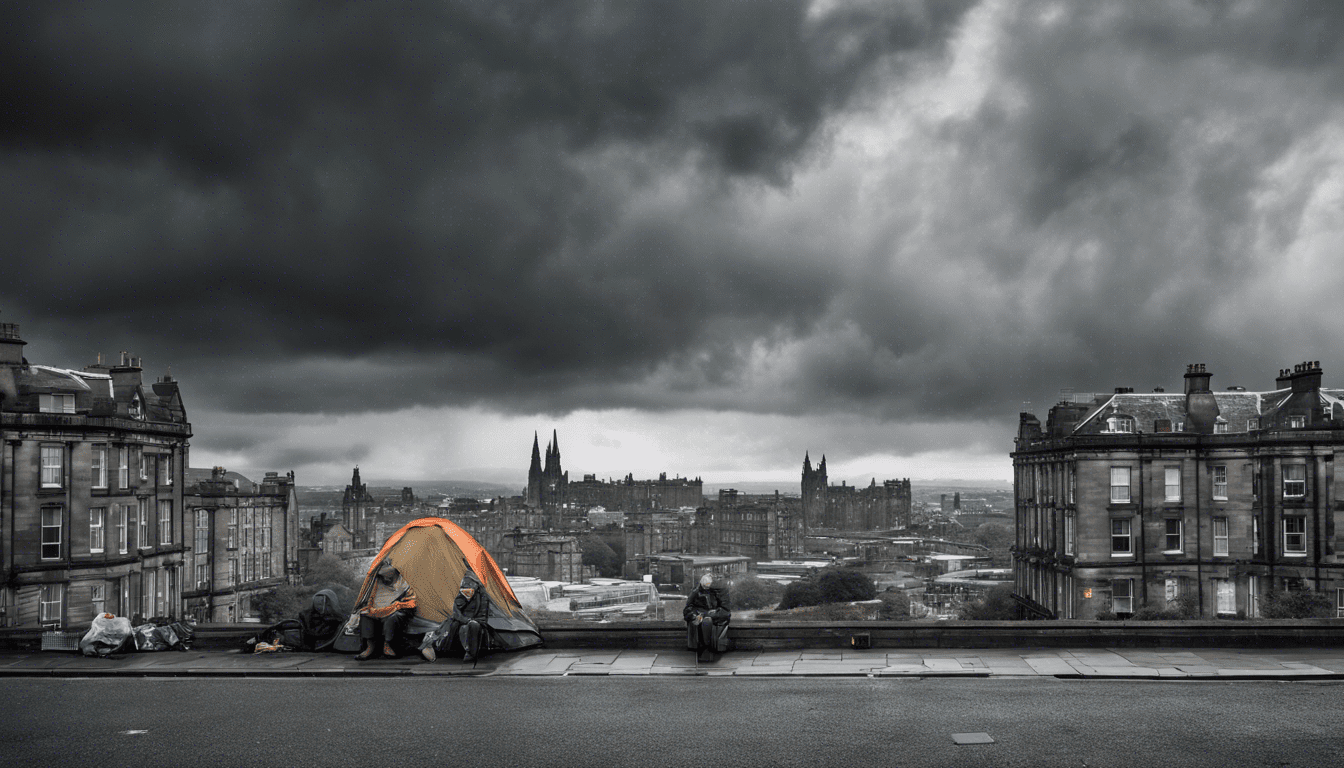In November 2024, Shelter Scotland has called for a significant overhaul in the leadership of the City of Edinburgh Council, citing serious concerns about its management of homelessness policy. The charity’s demands come amid a mounting homelessness crisis in Edinburgh, where the city is grappling with the second-highest rate of homelessness in Scotland, affecting 5,250 households who are currently in temporary accommodations, many living in unacceptable conditions.
Shelter Scotland has specifically condemned the Council’s proposal to utilize unlicensed houses in multiple occupation (HMOs). They argue that the decision contravenes the rights of homeless individuals and families, asserting that the council leaders are endorsing an unethical approach to homelessness by attempting to operate these unregulated properties. The situation has intensified following a recent committee meeting during which council members voted to suspend critical housing rights until March 2028, seeking a ‘dispensation’ from legal regulations governing HMOs for properties deemed safe for use.
In response, Shelter Scotland has voiced a lack of confidence in the council’s leadership, highlighting that the proposed measures undermine essential housing rights and prioritise short-term fixes over sustainable solutions. Meanwhile, the City of Edinburgh Council has defended its recent actions, suggesting they are necessary to navigate the ongoing crisis and protect the most vulnerable residents from homelessness.
Key Takeaways
- Shelter Scotland advocates for a leadership change in Edinburgh Council due to inadequate homelessness policies.
- The council’s controversial use of unlicensed HMOs has raised significant human rights concerns.
- Council’s temporary measures to address homelessness have met with strong opposition from housing advocates.
Background of the Homelessness Crisis in Edinburgh
In recent weeks, the homelessness crisis in Edinburgh has intensified, prompting Shelter Scotland to call for the removal of the City of Edinburgh Council’s senior leadership. The charity’s critique centres around the council’s controversial approach to homelessness policy, particularly the use of unlicensed houses in multiple occupations (HMOs). According to allegations, the council is endangering the rights of homeless households by attempting to legalize the operation of these unlicensed properties under conditions that are ostensibly deemed ‘safe’ (Shelter Scotland, 2024). At a recent council committee meeting, members voted on measures aimed at suspending essential housing rights until March 2028, a move that many, including Shelter Scotland, view as potentially harmful and indicative of a failure to adequately address the profound issues facing the homeless population (BBC News, 2024). Currently, Edinburgh has the second-highest homelessness rate in Scotland, with 5,250 households residing in temporary accommodations, many of which are unsuitable (Scottish Government, 2024). Shelter Scotland has condemned these actions as a breach of legal obligations and humanitarian principles, urging that the council be held accountable for what they see as a troubling disregard for the welfare of vulnerable groups (Evening News, 2024). The council, while defending its stance, emphasized that no final decisions have been made and characterised these measures as necessary for the immediate protection of those threatened by homelessness.
Controversy Over Council’s Use of Unlicensed HMOs
The ongoing dispute has highlighted significant tensions between local government authorities and homelessness advocacy groups in Edinburgh, igniting a larger conversation about the ethical implications of housing policies in the region. Furthermore, critics argue that the council’s reliance on unlicensed HMOs may establish a precarious precedent that undermines tenant rights, thereby exacerbating systemic issues associated with housing affordability and living conditions (Adamson, 2024). As the council grapples with soaring demand for housing solutions, Shelter Scotland asserts that the prioritization of immediate solutions should not come at the cost of legal and ethical standards that protect some of society’s most vulnerable populations. Meanwhile, the lack of transparent communication regarding these policy decisions has raised additional concerns about public accountability and trust in local governance (Ramsay, 2024). As Edinburgh navigates these contentious waters, the implications of this debate could resonate beyond the city, influencing broader legislative discussions surrounding homelessness and housing standards across Scotland.
Feel free to contact us via WhatsApp, social media, or email.
Always find the best rooms to rent & HMOs for sale in the UK at HMO Reporter.





